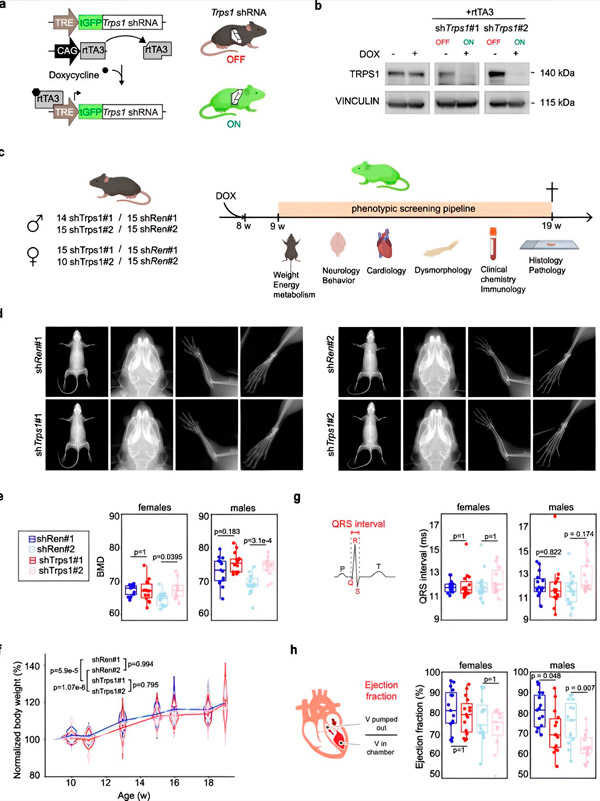
All iLive content is medically reviewed or fact checked to ensure as much factual accuracy as possible.
We have strict sourcing guidelines and only link to reputable media sites, academic research institutions and, whenever possible, medically peer reviewed studies. Note that the numbers in parentheses ([1], [2], etc.) are clickable links to these studies.
If you feel that any of our content is inaccurate, out-of-date, or otherwise questionable, please select it and press Ctrl + Enter.
Study finds new target for breast cancer drugs
Last reviewed: 02.07.2025

The mammary gland is a complex tissue consisting of many cell types. Its proper functioning is essential for breast health. Among the many factors regulating cellular homeostasis in the mammary gland, the transcription factor TRPS1 has received particular attention in recent years.
A recent study provides important insights into the role of TRPS1 in the maintenance of luminal progenitor cells in the mammary gland. The senior author of the study is Björn von Eiss, head of the research group "Transcriptional Regulation of Tissue Homeostasis" at the Leibniz Institute for Aging - Fritz Lipmann Institute in Jena.
The article, "TRPS1 Maintains Luminal Progenitors in the Mammary Gland by Suppressing SRF/MRTF Activity," was published in the journal Breast Cancer Research.
TRPS1 is a gene that plays a key role in maintaining certain cells in the breast. It suppresses specific proteins, thereby helping to control the differentiation of these cells. Von Eiss’s research group had previously elucidated the role of TRPS1 in breast cancer, but the function of TRPS1 in normal tissue remained largely unknown.
Because TRPS1 is important for the growth of many types of breast cancer, the scientists now investigated whether inhibiting TRPS1 could be a strategy for future therapies. In a mouse model, they studied how the body responds to TRPS1 inhibition throughout the body, aiming to model anti-TRPS1 therapies.

Widespread reduction of TRPS1 does not affect viability. Source: Breast Cancer Research (2024). DOI: 10.1186/s13058-024-01824-7
A study by Jena scientists has shown that TRPS1 could serve as a new target for drugs against breast cancer. "Mice in which TRPS1 was knocked out showed no significant changes, indicating that potential drugs inhibiting TRPS1 are likely to be well tolerated," says von Eiss.
In addition, the team, led by first author Marie Tollot, found that TRPS1 is required for the maintenance of luminal progenitor cells. This is an important finding, as this cell type is now thought to be the source of most breast tumors, and their numbers increase significantly with age.
Von Eiss adds: "In the next step, specific substances that affect the function of TRPS1 can be developed. It is particularly important that TRPS1 has already been shown to be safe in terms of organ toxicity, i.e. it does not have any harmful effects on organs when inhibited in the body. This is an important aspect in assessing the safety and potential applications of TRPS1 in medical research and therapy."
